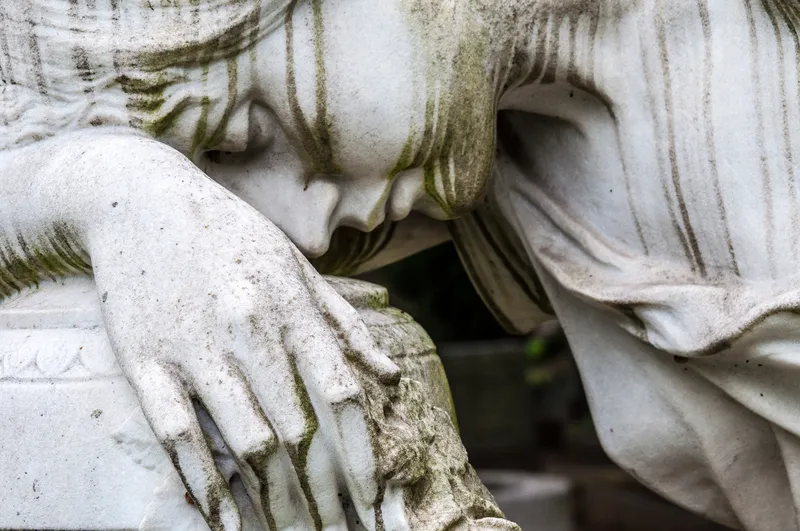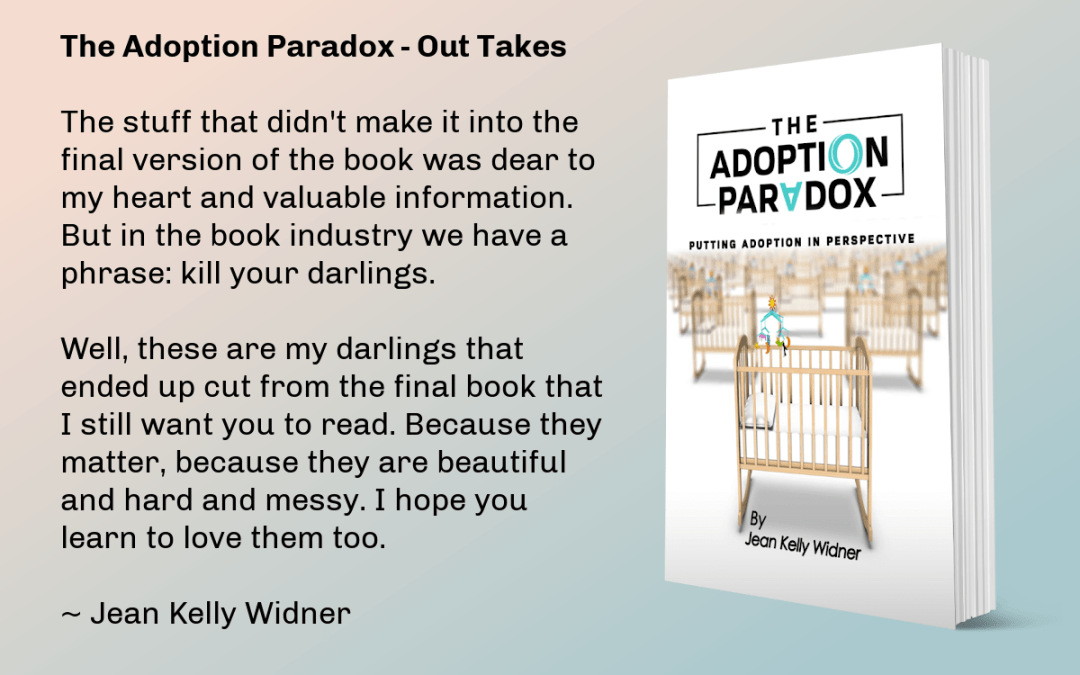People often ask me what my favorite chapters are in the book. That’s a hard one because the initial answer is of course “All of them!” I like my intro and outro where you hear some of my story and evolution through the writing journey. I love the chapters on the topic of reunions, 24 and 25. I love Chapter 3 on the history of American adoption. I love Chapter 26 where we get into the crazy laws here in the US that seal our birth certificates and the fight to gain access to them.
But one of the chapters that deeply affected me when I wrote it, and that was mentioned keenly by my beta readers and critique groups, was one right in the middle if the birth parent section: Chapter 13, The Cloak of Grief and Shame. So, we’ll begin here. In the center of the storm.
We’re talking grief in a big way. From the book:
“Birth parents always grieve their loss, whether they acknowledge it or not. But what they most often experience is disenfranchised grief. This is any loss or sorrow that is not acknowledged due to societal norms. These emotions are often minimized or not understood by others, which makes it particularly hard to process and work through. No one comes visiting with banana bread or a casserole. They’re on their own, and often alone with no one to share their suffering. Even close family will not acknowledge what has just happened. Co-workers avoid them. Friends and extended family are at a loss. Worst of all, no one wants to talk about or even see how traumatizing the relinquishment has been.”
These amazing women opened their hearts to us, and in this chapter, they strike a big chord:
Shayanne~
I was not okay for a long time. I was really, really not okay, and I am proud of myself because I almost didn’t make it. I realized that my kid was gone and I was not going to get a visit no matter who I asked or what I did. I think becoming a foster parent subconsciously helped, as if by being a foster parent I was as good as these other people. I was going to be as good as his adoptive parents and then they won’t be afraid of me anymore. They will let me have a visit.
They will do this and that and the other thing and it’ll be like I proved to them that I’m good enough. And I still wasn’t good enough, even after raising these other kids and becoming a foster parent. I was a shell. I just laid in bed and cried because of the devastation from realizing, “Oh my God, I don’t have a choice. There’s nothing I can do.” I have never been able to not help myself before. And it was so infuriating for me to realize, “I can’t do anything.”
The Impacts of Shame
Shame is systemic in adoption. Everyone takes a bite of this bitter sandwich, it seems. It’s plated up pretty with assurances that everything will be fine, everyone’s OK, it tastes fine. But its liverwurst dressed up like a juicy BLT. And the aftertaste lingers forever.
That’s one of the things about birth parent grief, and particularly so for our mothers of loss. Their longing, emotional pain, shame and guilt grow as time goes on, rather than diminish.

Disturbing Data
One other important part if this chapter we owe to the recent work from researcher Dr. Lynn Zubov, who gathered rather startling statistics on the consequences of relinquishment for birth mothers, in particular. Their health suffers, including even their life expectancy. Her preliminary research numbers show the following:
- First mothers are 39 times more likely to attempt suicide than the general population
- Of the 245 first mothers who were reported deceased by their relinquished adoptees from the survey, nine died by suicide
- The death rate of 3.59% by suicide for first mothers makes them roughly 511 times more likely to die of suicide[1]
More study is needed, but one thing noted in the three years of researching for the book, birth parents are by far the least studied group in the triad. And most of that research has been done in Australia and Canada, not in the US.
Cathryn~
I can’t think about this. I can’t ever think about this again or I’ll lose my mind. So, I didn’t. I pushed her down and away. I thought, I have to keep going—there’s no choice. There’s nothing I can do. It was as if she was dead.
I held a gun. The girls were young teen- agers. My husband was a hunter, and he had bought a handgun for small game hunting. I’ve always hated guns. I considered taking my life just because I was in so much pain, and I didn’t know what was wrong.
Honoring The Lost Mothers
The shame for some women who relinquish consumes them. They continue to make bad choices or meet unkind people who further abuse them in a cycle of self-harming behavior that reinforces their shame. Others never learn to tell even one person and remain isolated and alone with their secrets to their graves.
For the ones who don’t make it back into the light of day, may they be heard from now through the eyes of those who survive them.
The chapter closes with stories told from adoptees who have survived their first/birth mothers. Initially I had three stories here, but in the need to trim the length of the book one of them had to be cut. Here it is:
Tina, honoring her birth mother, Marilyn~
It really did mess up my mother’s life. She never recovered. She got married within a couple of years of my birth, had my sister, then lost custody of my sister to her parents.
She became a drug user and an alcoholic. But she was turned on to that by her then husband who my grandparents loved. They thought he was the greatest. But he was the one that turned her on to all these drugs and stuff. She would disappear for weeks at a time. Then my grandfather would go find my biological father, who was a police officer by that time. [My birth dad] would go find her in different drug houses and bring her home. So, the dynamic ended up with my birth dad being the good guy. Her husband was the bad guy.
But she had done what her parents told her to do. She went with the guy that they told her to go with, and it wrecked her life. She never recovered from giving me up. She never recovered from losing custody of my sister. It was like constant blows to her life, and she just never could get on her feet after that.
I think that maybe things would have been a little bit easier for her, if she could have had just a tiny bit of support. I think that started her downward spiral, and it just went on for another thirty years.
[1] A Preliminary Exploration into Adoption Reunions. Data on when adoptees knew they were adopted. Facebook, 7 2024, 3:19PM, https://www.facebook.com/profile. php?id=61555968231690, Accessed14 Jun 2024.



